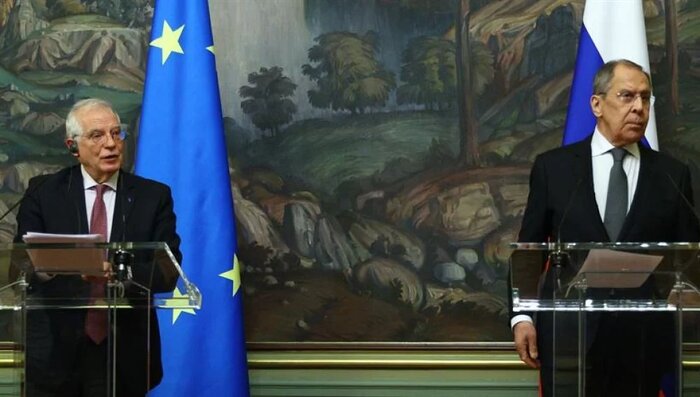Although the Ukraine crisis in 2014 marked a turning point in escalating tensions, various events in recent years have led to the continuation of that situation. According to officials on both sides, there is a lack of a positive outlook for moving towards reducing tensions. In this regard, perhaps it can be referred to the statement of Joseph Borrell, EU Foreign Policy Chief that the EU needs to be realistic and ready to downgrade its relations with Russia, which is now at an all-time low.
Trust, the missing link in Russia-Europe relations
A notable feature of tensions between Russia and Europe is their resort to various military, diplomatic, and even economic spheres. Economic sanctions, accusations of interference in each other’s internal affairs, human rights issues, escalation of military demonstrations such as the increase in Russian troops on the Ukrainian border, etc. all show that “trust” is a missing link in Russia-Europe relations.
Although tough security concerns such as the classic military threat and new security threats such as cyber threats are at the forefront of Russian and European tensions, their economic ties are also severely strained. For example, economic exchanges between Russia and the European Union are reported to have almost halved compared to 2013 figures. This suggests that the issue of “interdependence” can also be seriously affected by security issues.
Despite the continuing tense situation in recent years, there is still no sign of improving relations. Security concerns between the two sides are growing. For example, declaration of a recent NATO summit as a European-centered institution emphasized Russia’s violation of the values, principles, trust and commitments set out in the documents agreed between the two sides, and Putin recently expressed Moscow’s concern about increase in the military capacity and infrastructure of the organization on its borders.
All of the above signs well illustrate deterioration of the situation, but the important question that needs to be answered is the possibility of adjustment in Moscow-Brussels relations in the short and medium term. Several important facts seem to affect the future state of relations between the two sides, which are mentioned below:
One of the effective factors mentioned above is the deepening of tensions in relations between Russia and Europe, which seems to have affected the major areas of cooperation and relations between the two sides. The deeper the differences, the less convergence and the longer it takes is possible.
The second issue goes back to the tense nature of Washington-Moscow relations. Maintaining or increasing US-Russian tensions will also affect European-Moscow relations. The strategy of multilateralism and cooperation with partners is one of the pillars of countering threats posed by the United States. In the meantime, European partners will play an important role in advancing this strategy. At the same time, if the United States pursues a policy of reducing and managing tensions with Moscow, this will also affect European-Russian relations. The perception of other great powers, such as Russia, of the decline of American power and the attempt to define a multipolar international system, and thus the role of a great power, will be among the factors influencing continuation of tensions.
The third issue goes back to the development of Russia’s relations with China in recent years. In particular, especially since 2014, following the Ukraine crisis, China’s position in Russian foreign policy has increased dramatically. Given the development of bilateral relations, especially in the economic sphere, Russian officials seem to be less concerned about reducing interactions with European countries, especially in the economic sphere, such as energy exports. In such a situation, the motivation to reduce tension in Moscow decreases.
The fourth issue is related to differences in value and political systems, because with the return of competition between the great powers, this issue has become one of the main issues in Western relations with countries such as Russia or China and has changed into a serious pressure lever. This, in addition to Europe’s desire to expand its political, economic and military presence in Russia’s periphery, has limited prospects for improving relations.
Despite all the above challenges, the entry of the two sides into the Cold War is far from reality. Looking at the past few years, it is clear that since the Ukraine crisis, some European countries have always stated the need to reduce tensions with Russia. At the same time, the atmosphere of adjustment of tensions in the coming years is far from expectation.










0 Comments